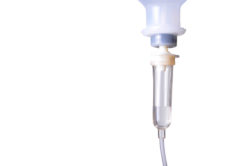Top Class Actions’s website and social media posts use affiliate links. If you make a purchase using such links, we may receive a commission, but it will not result in any additional charges to you. Please review our Affiliate Link Disclosure for more information.

Massachusetts General Hospital researchers, led by the study’s senior author Eric M. Gale, Ph.D., assistant in Biomedical Engineering at the hospital and assistant professor in Radiology at Harvard Medical School, made their study results available online at Investigative Radiology.
A manganese-based contrast agent, Mn-PyC3A, appears to provide tumor contrast enhancement on MRIs that rival that of the traditional gadolinium-based imaging agents, known as GBCAs.
Research showed that the manganese-based contrast agent was more completely eliminated from the body compared to gadolinium-based agents. Manganese is a naturally occurring essential element found in the human body, while gadolinium is not.
The manganese contrast agent uses a chelator, which is a small molecule that binds tightly to metal ions. The chelating agent enables the full excretion of the manganese from the body because the chelator acts to encapsulate the manganese, preventing the substance from interacting with other cells.
One of the authors of the study, Peter Caravan, Ph.D., told Science Daily, “Without a chelator of sufficient strength, the manganese will be taken up by the liver and remain in the body.”
Caravan is co-director for the Institute for Innovation in Imaging at Massachusetts General Hospital and associate professor of Radiology at Harvard Medical School.
Safety of Gadolinium Imaging Agent Questioned
Researchers have been on the hunt for an alternative to gadolinium, which was approved by the U.S. Food and Drug Administration (FDA) in 1988. Back in 2007, patients with kidney disease demonstrated a propensity to develop nephrogenic systemic fibrosis (NSF) when gadolinium-based contrast agents were used in their MRI exams. This is possibly due to the longevity of the contrast in the system.
Even though NSF is not a common problem, it is a rare and serious progressive disease that damages many of the body’s organs. Post-findings, the FDA banned the use of a gadolinium imaging agent for MRIs in patients with pre-existing kidney disease.
If manganese offers a comparable imaging clarity and is excreted quicker and more thoroughly from the body, the discovery could have great implications for patients with kidney disease and for those who must undergo relatively frequent MRIs for certain types of cancer screenings or degenerative muscle diseases such as multiple sclerosis.
Does My Radiologist Have to Tell Me About the Risks?
The problems with gadolinium have earned the attention of the FDA, especially as more patients report problems and their concerns associated with gadolinium left behind in their system after an MRI.
In 2015, the FDA shared that they would be requiring several actions in order to notify patients and healthcare professionals about the dangers of gadolinium after an MRI. Part of this included giving patients a medication guide prior to getting an MRI and ensuring that healthcare professionals speak with the patient about the risks. However, not all healthcare workers have been following the FDA guidelines.
One study showed that radiologists, for example, have not been informing patients about the risks. The study managers said that radiologists have been relying on a policy that enables the doctors to exercise discretion about whether or not they should give patients safety information. A report in Health Imaging says that some radiologists remove information about gadolinium from their reports to avoid triggering patient concerns.
Some patients might develop gadolinium exposure after just one MRI, but the ones who are most likely to suffer from issues related to retention are people who have multiple MRIs with the use of gadolinium. Some lawsuits involving claims of gadolinium retention say that the condition has caused a lot of side effects and medical conditions for affected patients, like kidney damage, muscle spasms, and skin burns.
Gadolinium Lawsuits
In the past several years, many patients who have become ill after having repeated gadolinium exposure through contrast MRIs have blamed the lingering metal in their bodies for their symptoms. Many of these patients say they did not know about the dangers of gadolinium exposure and retention until after their MRI when they developed the condition of gadolinium deposition disease.
The most high-profile case involves actor Chuck Norris and his wife Gena, who filed a $10 million lawsuit against McKesson Corporation, claiming the company’s gadolinium contrast dye caused her to become weak, tired and suffer from pain and burning sensations in her body following MRI exams.
Gena claims she suffers from Gadolinium Deposition Disease because a certain amount of substance remains in her system. She allegedly has received chelation therapy and stem cell therapy to counteract the symptoms of what she considers to be gadolinium poisoning.
The FDA has recognized that the brain and other bodily tissues may retain small amounts of gadolinium after a contrast-based MRI has been conducted. Those individuals that have suffered gadolinium toxicity can file a lawsuit to help with medical bills and complications.
Join a Free Gadolinium Toxicity Class Action Lawsuit Investigation
If you or a loved one developed gadolinium toxicity after having an MRI with gadolinium contrast, you may be eligible to file a gadolinium MRI lawsuit against pharmaceutical companies. Fill out the form on this page for a FREE evaluation of your eligibility.
ATTORNEY ADVERTISING
Top Class Actions is a Proud Member of the American Bar Association
LEGAL INFORMATION IS NOT LEGAL ADVICE
Top Class Actions Legal Statement
©2008 – 2024 Top Class Actions® LLC
Various Trademarks held by their respective owners
This website is not intended for viewing or usage by European Union citizens.
Get Help – It’s Free
Join a Free Gadolinium MRI Lawsuit Investigation
If you qualify, an attorney will contact you to discuss the details of your potential case at no charge to you.
PLEASE NOTE: If you want to participate in this investigation, it is imperative that you reply to the law firm if they call or email you. Failing to do so may result in you not getting signed up as a client or getting you dropped as a client.
E-mail any problems with this form to:
Questions@TopClassActions.com.
Oops! We could not locate your form.












